Wikis are one of the most underutilized tools in the instructional designer's toolbox. As trainers, it is imperative that we engage the learner beyond the classroom in order to effect real, permanent, and quantifiable changes in behavior. Yet, often times I find designers and trainers unwilling to engage their audiences beyond the classroom with this tool. Several reasons for this exist.
Firstly, some training teams lament they are constrained by IT policies not conducive to collaborative tools. Some training managers have even asked,"
Can I implement a wiki bypassing IT altogether?" While the answer is yes, you can go with a SaaS vendor and be up and running in under ten minutes, it is advisable to not bypass your IT team and instead model the collaborative spirit you want to see in your workforce. You must be the change you want to see in the world, even if you sometimes feel like strangling your IT people.
Secondly, trainers and designers often lack knowledge of the power, flexibility, and ease of use of today's wiki software. Sure, we've all performed research on Wikipedia, but few designers and trainers have experimented with open-source wiki technology. As performance engineers and learning strategists, we must tinker with the latest tech and evaluate its utility for our learning systems. Failure to do so ensures we miss out on opportunities for our learners, as well as for our own development and understanding of the many ways technology is changing the training landscape. For far less money than many training teams spend on over-hyped learning management systems, it's time we spend a fraction of that budget on tailoring a wiki to engage learners and to supplement our training efforts outside of formal training events.
Finally, there are fears and misunderstandings of this technology. The main fear is of the unknown. While most people have used Wikipedia, it is but one example and not an ordinary example of what wiki technology is capable of. Yet, since it is the most common reference point for most people, many mistakenly draw conclusions about the technology from this vantage point. Fears of this technology range from how it can be used to support a community, to the cultural effects on the organization from having such an open and transparent technology available to all. Having a wiki in and by itself does not a collaborative culture make, and without content worth maintaining or people who care to maintain it no wiki in the world can grow and flourish.
The capacity to build and engage a community of learners is one which I believe will be essential to your relevance as an instructional designer, teacher, or trainer. In fact, “social learning” was already added to one of the nine existing Areas of Expertise in the ASTD Competency Model (middle tier). You can begin increasing your fluency with wikis as a social learning technology by downloading and experimenting with Tiddlywiki, one of the many open-source wiki platforms available. Tiddlywiki is a wonderful personal notebook you can use to familiarize yourself with the technology before moving to larger and more complex systems. Simply download it, save it to a place in your computer, and create a shortcut to it from your browser so that you can access it readily whenever you want to make a note.
I suggest you get started on building this competency and adding it to your repertoire sooner rather than later. As always, please don’t hesitate to write if you need help or have a question, we’re here to help you succeed! Would love your comments on Tiddlywki, or on your own use of wiki technology at your organization below- regardless of platform .
- Alex Santos
Alex is a co-founder and Managing Member of Collabor8 Learning, LLC, an instructional design and performance management consultancy. His firm collaborates with organizations to enhance the way they develop and train their people. To learn more about Collabor8 Learning, click here.
Alex can be reached at 786-512-1069, alex@collabor8learning.com or via Twitter@collabor8alex.


